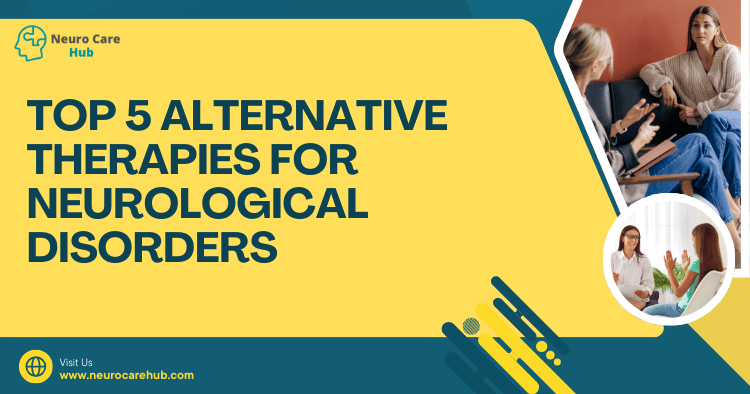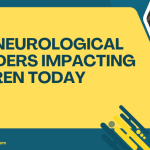Table of Contents
- Introduction
- 1. Acupuncture
- 2. Meditation and Mindfulness
- 3. Herbal Remedies
- 4. Nutritional Therapy
- 5. Physical Therapy and Exercise
- Conclusion
- FAQs
Introduction
Neurological disorders can significantly impact quality of life, affecting everything from movement to cognitive functions. While conventional medicines and therapies are crucial for managing these conditions, many individuals are turning to alternative therapies to complement their treatment plans. This blog dives into the top five alternative therapies for neurological disorders, offering insights into how they work, their benefits, and what current research says.
1. Acupuncture
Acupuncture, a traditional Chinese medicine practice, involves inserting fine needles into specific points on the body to stimulate healing and balance. Research has shown that acupuncture may be effective for various neurological disorders, including chronic pain, migraines, and even symptoms of multiple sclerosis.
How It Works
The theory behind acupuncture is that it promotes the flow of “qi” (pronounced “chee”), or life energy, through pathways known as meridians. By correcting imbalances, acupuncture can help alleviate symptoms related to nerve function.
“Acupuncture not only offers pain relief but also encourages the body’s natural healing processes.”
Benefits
- Pain relief: Many patients report significant reductions in pain levels.
- Reduced inflammation: Acupuncture may help decrease inflammation, which is often associated with neurological disorders.
- Improved mental clarity: Some studies suggest that acupuncture can enhance cognitive function and mood.
Research Insights
A review published in the Journal of Pain Research found that acupuncture significantly reduced chronic pain in patients with neurological disorders. For more details, you can check out this research study.
2. Meditation and Mindfulness
Meditation and mindfulness practices have gained popularity as effective tools for managing stress, anxiety, and even neurological disorders. These techniques focus on cultivating awareness and promoting relaxation, which can be beneficial for conditions like epilepsy, Parkinson’s disease, and Alzheimer’s.
How It Works
Meditation encourages the brain to enter a state of relaxation, reducing the production of stress hormones. This can lead to improved emotional regulation and cognitive function.
“Mindfulness isn’t just about relaxation; it’s a powerful tool for enhancing mental clarity and emotional resilience.”
Benefits
- Stress reduction: Regular practice can lower stress levels, which is crucial for neurological health.
- Enhanced focus and memory: Mindfulness has been shown to improve attention span and memory retention.
- Emotional balance: Patients often report feeling more centered and less anxious.
Research Insights
A study in JAMA Internal Medicine indicated that mindfulness meditation can help reduce anxiety and improve overall well-being in patients with chronic health issues. For further reading, visit this study.
3. Herbal Remedies
Herbal remedies have been used for centuries to treat various ailments, including neurological disorders. Some herbs, like Ginkgo biloba and Bacopa monnieri, are particularly noted for their potential cognitive benefits.
How It Works
Herbs typically contain bioactive compounds that can influence brain function, improve blood circulation, and modulate neurotransmitter activity.
“Embracing herbal remedies may open doors to natural healing pathways that modern medicine often overlooks.”
Benefits
- Cognitive enhancement: Certain herbs may help improve memory and concentration.
- Neuroprotection: Some studies suggest that specific herbal compounds can protect brain cells from damage.
- Mood stabilization: Many herbs possess adaptogenic properties, helping stabilize mood and reduce anxiety.
Research Insights
Ginkgo biloba has been studied for its effects on cognitive function in Alzheimer’s patients, with promising results. For in-depth information, check the National Center for Complementary and Integrative Health.
4. Nutritional Therapy
Diet plays a vital role in neurological health. Nutritional therapy focuses on optimizing dietary intake to support brain function and overall health.
How It Works
A balanced diet rich in antioxidants, omega-3 fatty acids, and vitamins can help protect the brain from oxidative stress and inflammation.
“Fueling your body with the right nutrients can be a game changer for neurological health.”
Benefits
- Improved brain function: Nutrients like omega-3s are essential for cognitive health.
- Reduced inflammation: Foods rich in antioxidants can help lower inflammation levels in the body.
- Weight management: A healthy diet can help manage weight, reducing the risk of further complications.
Research Insights
The Mediterranean diet has been linked to a lower risk of Alzheimer’s disease. For more information, check this research article.
5. Physical Therapy and Exercise
Physical therapy and regular exercise are crucial for maintaining mobility and strength in individuals with neurological disorders.
How It Works
Physical therapy uses exercises tailored to the individual’s needs to improve strength, coordination, and balance. Regular exercise releases endorphins, which can enhance mood and reduce stress.
“Exercise isn’t just about physical strength; it’s a holistic approach to enhancing life quality and mental health.”
Benefits
- Improved mobility: Tailored exercises can help maintain or improve movement capabilities.
- Pain reduction: Physical activity can alleviate pain associated with various neurological conditions.
- Enhanced quality of life: Regular exercise is linked to better overall health and well-being.
Research Insights
A systematic review in the Archives of Physical Medicine and Rehabilitation highlighted the effectiveness of exercise in improving mobility and quality of life in patients with neurological disorders. You can read more about it here.
Conclusion
Alternative therapies can provide valuable support for individuals coping with neurological disorders. While these therapies should complement, not replace, conventional treatments, they offer promising avenues for enhancing well-being and quality of life. Always consult with a healthcare provider before starting any new therapy to ensure it aligns with your overall treatment plan.
“Exploring alternative therapies is about empowering yourself to take control of your health and well-being.”
For more insights on neuro care and related topics, visit our articles on Top 5 Essential Insights on Neuro Care You Need to Know and Top 5 Benefits of Early Intervention in Neuro Care.
FAQs
Q1: Are alternative therapies safe for everyone?
A1: While many alternative therapies are generally safe, it’s essential to consult with a healthcare professional, especially if you have pre-existing conditions or are taking medications.
Q2: How long does it take to see results from alternative therapies?
A2: Results can vary widely depending on the individual, the type of therapy, and the specific condition being treated. Some may experience benefits within a few sessions, while others may take longer.
Q3: Can these therapies be used alongside medications?
A3: Many alternative therapies can be safely used in conjunction with medications, but it’s crucial to discuss this with your healthcare provider to avoid potential interactions.
Q4: Where can I find qualified practitioners for these therapies?
A4: Look for licensed professionals in your area, and consider checking resources such as the American Association of Acupuncture and Oriental Medicine for acupuncture or the American Physical Therapy Association for physical therapy.
By exploring these alternative therapies, you can take proactive steps towards better management of neurological disorders while enhancing your overall well-being.






